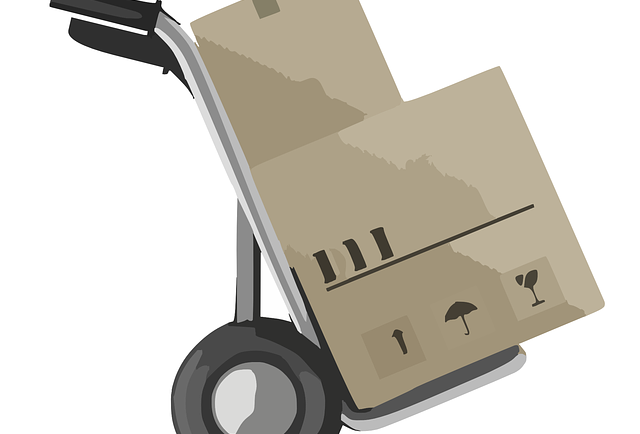
Are you prepared for the unexpected costs of moving? In Singapore, the expenses can add up quickly, leaving many feeling overwhelmed. From hidden fees to fluctuating service rates, understanding the full scope of moving costs is crucial.
We know it’s not just about packing up and relocating; it’s about doing it without breaking the bank. This guide dives deep into everything you need to know about moving costs in Singapore, offering practical advice to help you budget wisely and uncovering tips to save money, so your move can be as smooth and stress-free as possible.
Overview of Moving Costs in Singapore
The cost of moving in Singapore typically ranges from SGD 300 to SGD 1,500 for a standard move, depending on several variables such as the size of your home, the distance of the move, and the services you choose.
Basic moving costs generally include transportation, packing services, and additional fees like insurance or dismantling and reassembling furniture. Understanding these components is crucial for budgeting your move effectively.
Factors Influencing Moving Costs
Understanding what drives the cost of your move is crucial for effective budgeting. Several key factors come into play, each impacting the final price differently. Let’s break down these elements to help you anticipate and manage your moving expenses better.
The size of your move is one of the most significant factors affecting the cost. A one-bedroom apartment will cost less to move than a three-bedroom house. The volume of items being transported directly impacts the price because it dictates the size of the moving vehicle and the number of movers required.
Whether you’re moving within the same district or across the island, the distance plays a significant role in determining the cost. Moves within the same area are generally more affordable, while cross-island relocations incur higher transportation fees.
Moving companies offer a range of services, including packing, unpacking, furniture dismantling, and storage. Each service adds to the overall cost. For example, if you need packing for self storage, this service will increase the total expense but provides added convenience and protection for your items.
The timing of your move can also impact the cost. Moving during peak periods, such as weekends or public holidays, often incurs higher charges. If possible, schedule your move during off-peak periods, like weekdays, to take advantage of lower rates.
Don’t forget to factor in extra charges such as insurance, handling bulky or fragile items, and parking fees at both locations. Some movers charge a premium for stairs or elevators, so ensure you have a clear understanding of all potential costs before finalizing your mover.
Breakdown of Moving Services and Their Costs
Professional packing services can cost between SGD 200 to SGD 600, depending on the number of items and their fragility. Professional packing ensures your items are securely packed and minimizes the risk of damage during transit. This service is particularly useful for delicate or valuable items like glassware, antiques, or electronics.
The cost of transportation typically ranges from SGD 100 to SGD 500, depending on the size of the vehicle required and the distance to be covered. Larger vehicles or longer distances will naturally result in higher costs.
Movers generally charge based on the number of workers required and the hours needed for the move. The rate usually falls between SGD 30 to SGD 50 per hour per worker. For larger homes, more movers may be necessary, increasing the total labor cost.
If you require temporary storage during your move, you’ll need to consider the cost of self-storage units. Packing for self storage often involves renting a storage unit, which can cost anywhere from SGD 100 to SGD 400 per month, depending on the size and type of storage. Climate-controlled units are pricier but essential for items sensitive to temperature and humidity.
Tips to Reduce Moving Costs
- Declutter Before Moving: Before your move, go through your belongings and decide what you truly need. Sell, donate, or dispose of items you no longer use to reduce the volume of items that need to be moved. This not only lowers moving costs but also makes unpacking easier.
- DIY Packing: Consider packing non-fragile items yourself. This can significantly reduce the cost of professional packing services. Use quality packing materials to protect your belongings, and clearly label each box to make unpacking more manageable.
- Plan Ahead: Booking your moving services well in advance can save you money. Last-minute moves can incur extra charges, and early booking allows you to secure off-peak rates. Planning ahead also gives you time to compare prices and select the best moving company.
- Get Multiple Quotes: Don’t settle for the first moving company you find. Obtain quotes from several companies to compare prices and services. This can help you find the best deal and avoid hidden fees.
Choosing the Right Moving Company in Singapore
Selecting the right moving company can make all the difference in your moving experience. With numerous options available, it’s essential to know what to look for. Here are some key considerations to help you make an informed choice.
Always choose a moving company with a proven track record. Experienced movers are more likely to handle your belongings with care, ensuring a smooth transition. Check online reviews and ask for recommendations to find a reputable mover.
Opt for a moving company that provides a detailed breakdown of costs upfront. This transparency helps you understand exactly what you’re paying for and avoids surprises on moving day.
Ensure that the moving company offers insurance to protect your belongings in case of damage or loss during the move. This peace of mind is worth the additional cost.
Conclusion
Moving in Singapore doesn’t have to drain your wallet. By grasping the key factors that influence costs and planning strategically, you can take control of your moving budget. Every decision, from choosing the right services to timing your move, plays a role in keeping expenses manageable.
Remember, a well-planned move is not just about getting from point A to point B—it’s about doing so smartly and economically. As you prepare for this transition, ask yourself: how can you make this move not just an expense, but an investment in a smoother, more organized future?




